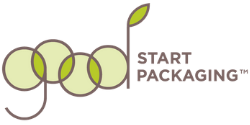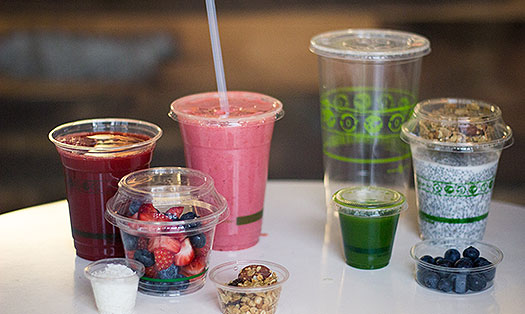What You Might Not Know About Foam
Many cities around the U.S. have passed or are in the process of passing laws that prohibit the use of expanded polystyrene foam take-out containers.
Commonly called Styrofoam™, polystyrene gained popularity in the food service and packaging industries because of its insulating properties. We now know the cost of this convenience far outweighs any benefits. Many scientists believe that the manufacturing of foam containers is harmful to humans and wildlife, creates environmental litter that is costly and difficult to clean up, and is simply not environmentally sustainable.
Not Biodegradable, Made From Non-Renewable Resources
Drinking coffee out of a foam cup takes just a few minutes but that cup will last for generations in a landfill. Polystyrene never fully biodegrades because it’s resistant to photolysis, the process where light causes a material to break down. It lasts virtually forever, but the resources used to make foam will not. Polystyrene foam is made from petroleum, a non-renewable resource. Not only is there a limited supply of this resource, the methods used to collect oil often result in environmental hazards such as oil spills that further pollute our planet.
Harmful to Humans
Polystyrene is made from Styrene, which is classified as a possible human carcinogen by the EPA and by the Department of Health and Human Services. Workers exposed to Styrene in manufacturing plants can potentially experience negative health effects including:
-
Irritation of the eyes, skin, respiratory track and gastrointestinal effects
-
Central nervous system disorders such as depression, headache, fatigue and weakness
Restaurants that use foam containers are putting their customers at risk as well. Toxic chemicals can leach into food, especially if the container is microwaved.
Hazardous to Marine Life and Waterways
A new UCLA report estimates that nearly 20 million tons of plastic enters the ocean environment annually. In some areas up to 80% of marine litter is plastic, the majority of which is polystyrene. Lightweight foam is easily blown about by the wind and foam litter quickly makes its way to storm drains, waterways and oceans. Out in the environment just divides into smaller and smaller pieces which birds and aquatic animals often mistake for food. Once ingested, these small foam particles constrict airways and cause extensive damage to internal organs.
Studies have also shown that polystyrene easily absorbs toxic chemicals while floating in waterways and these toxins are transferred to fish that eat the particles. Those fish are eaten by larger fish and the toxins make their way up the food chain, ultimately to people.
Can’t We Just Recycle It?
Although technology to recycle expanded polystyrene does exist, the systems are costly and difficult to manage and there is little market for the resulting material. Very few recycling centers accept expanded polystyrene, so in most cases any foam food containers put into recycling bins ultimately end up in a landfill where they never biodegrade. Or worse, in our waterways! In the few instances where it is actually recycled, it is used to create a completely different product. Recycled foam cups are not used to make new foam cups. So any new foam containers produced must be made from all virgin petroleum resources. Even if polystyrene recycling gained momentum, producing new foam containers would still be un-sustainable.
The Changing Tide
With so many eco-friendly alternatives available like fiber clamshells and compostable hot cups, using polystyrene for cups and food containers is quickly becoming a thing of the past. New materials are also commonly being used in products, like sugarcane bowls and bamboo fiber cups.
Ken Jacobus is CEO and founder of Good Start Packaging. He works with restaurants and other organizations around the U.S. to help them find the best sustainable alternatives to traditional plastic take out food containers. When not busy trying to eliminate landfills and plastic, he hikes, bikes, skis, reads, and plays with his family around his home in southern New Hampshire.




